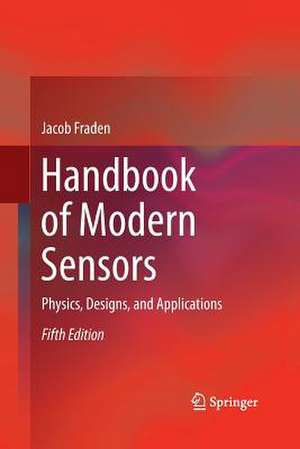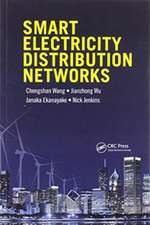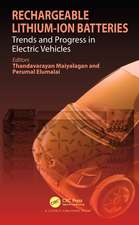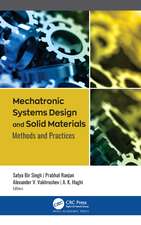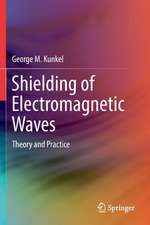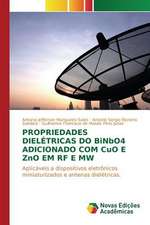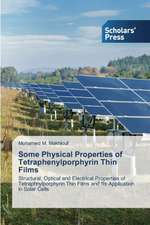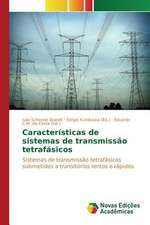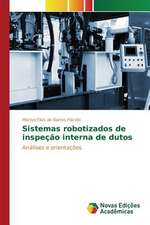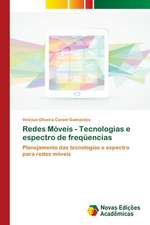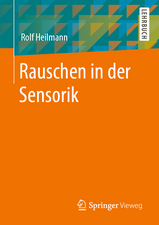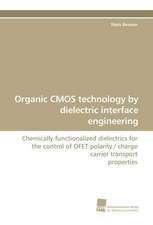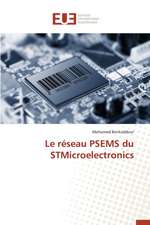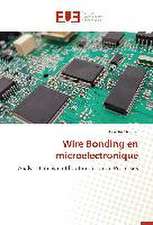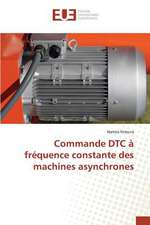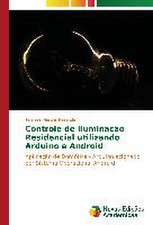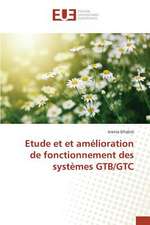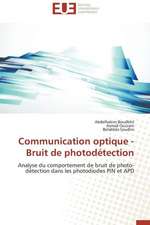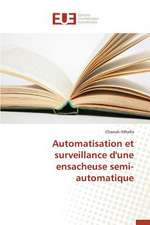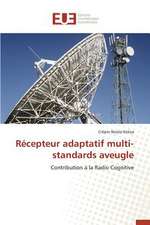Handbook of Modern Sensors: Physics, Designs, and Applications
Autor Jacob Fradenen Limba Engleză Paperback – 16 oct 2015
Digital systems, however complex and intelligent they may be, must receive information from the outside world that is generally analog and not electrical. Sensors are interface devices between various physical values and the electronic circuits that "understand" only a language of moving electrical charges. In other words, sensors are the eyes, ears, and noses of silicon chips.
Unlike other books on sensors, the Handbook of Modern Sensors is organized according to the measured variables (temperature, pressure, position, etc.). This book is a reference text for students, researchers interested in modern instrumentation (applied physicists and engineers), sensor designers, application engineers and technicians whose job it is to understand, select and/or design sensors for practical systems.
| Toate formatele și edițiile | Preț | Express |
|---|---|---|
| Paperback (2) | 749.40 lei 6-8 săpt. | |
| Springer International Publishing – 16 oct 2015 | 749.40 lei 6-8 săpt. | |
| Springer – 19 sep 2014 | 799.12 lei 6-8 săpt. | |
| Hardback (1) | 973.69 lei 6-8 săpt. | |
| Springer International Publishing – 27 oct 2015 | 973.69 lei 6-8 săpt. |
Preț: 749.40 lei
Preț vechi: 913.90 lei
-18% Nou
Puncte Express: 1124
Preț estimativ în valută:
143.39€ • 150.12$ • 118.65£
143.39€ • 150.12$ • 118.65£
Carte tipărită la comandă
Livrare economică 05-19 aprilie
Preluare comenzi: 021 569.72.76
Specificații
ISBN-13: 9783319307671
ISBN-10: 3319307673
Pagini: 758
Ilustrații: XIX, 758 p.
Dimensiuni: 155 x 235 x 46 mm
Greutate: 1.07 kg
Ediția:5th ed. 2016
Editura: Springer International Publishing
Colecția Springer
Locul publicării:Cham, Switzerland
ISBN-10: 3319307673
Pagini: 758
Ilustrații: XIX, 758 p.
Dimensiuni: 155 x 235 x 46 mm
Greutate: 1.07 kg
Ediția:5th ed. 2016
Editura: Springer International Publishing
Colecția Springer
Locul publicării:Cham, Switzerland
Recenzii
Selected by Choice magazine as an "Outstanding Academic Title" for 2016
“Each class of sensors is individually addressed in detail from its basics to modern usage. Besides the physics behind the operation of the sensors, sensor applications and limitations are explained well. … This clearly written work would be an excellent resource for most technical readers who want to understand, use, and design with sensors. Summing Up: Highly recommended. Upper-division undergraduates through professionals/practitioners; two-year technical program students.” (M. Mehrubeoglu, Choice, Vol. 53 (10), June, 2016)
“This book appeared at a time of increasing need for sensor handbooks and is therefore a good choice for students as well as engineers. It presents an overview giving a comprehensive and up-to-date physical principles, design, and practical implementations of various sensors for scientific, industrial, and consumer applications. … Owing to the amount of content, this is still aworthwhile handbook, which would be interesting for a lot of readers coming from different scientific disciplines.” (Gerald Urban, Analytical and Bioanalytical Chemistry, May, 2016)
“Each class of sensors is individually addressed in detail from its basics to modern usage. Besides the physics behind the operation of the sensors, sensor applications and limitations are explained well. … This clearly written work would be an excellent resource for most technical readers who want to understand, use, and design with sensors. Summing Up: Highly recommended. Upper-division undergraduates through professionals/practitioners; two-year technical program students.” (M. Mehrubeoglu, Choice, Vol. 53 (10), June, 2016)
“This book appeared at a time of increasing need for sensor handbooks and is therefore a good choice for students as well as engineers. It presents an overview giving a comprehensive and up-to-date physical principles, design, and practical implementations of various sensors for scientific, industrial, and consumer applications. … Owing to the amount of content, this is still aworthwhile handbook, which would be interesting for a lot of readers coming from different scientific disciplines.” (Gerald Urban, Analytical and Bioanalytical Chemistry, May, 2016)
Notă biografică
Jacob Fraden holds a Ph.D. in medical electronics and is president of Fraden Corp., a technology company that develops sensors for consumer, medical and industrial applications. He has authored nearly 60 patents in the areas of sensing, medical instrumentation, security, energy management and others.
Caracteristici
Covers nearly all imaginable types of sensors Previous editions widely used as a textbook and as a reference work in industry Clear and engaging explanations of sensor design and operation
Cuprins
Data Acquisition.- Sensor Characteristics.- Physical Principles of Sensing.- Optical Components of Sensors.- Interface Electronic Circuits.- Occupancy and Motion Detectors.- Position, Displacement, and Level.- Velocity and Acceleration.- Force, Strain, and Tactile Sensors.- Pressure Sensors.- Flow Sensors.- Acoustic Sensors.- Humidity and Moisture Sensors.- Light Detectors.- Radiation Detectors.- Temperature Sensors.- Chemical Sensors.- Sensor Materials and Technologies.
Textul de pe ultima copertă
This book is about devices commonly called sensors. Digital systems, however complex and intelligent they might be, must receive information from the outside world that is generally analog and not electrical. Sensors are interface devices between various physical values and the electronic circuits who "understand" only a language of moving electrical charges. In other words, sensors are the eyes, ears, and noses of silicon chips.Unlike other books on sensors, this book is organized according to the measured variables (temperature, pressure, position, etc.) that make it much more practical and easier to read. In this new edition recent ideas and developments have been added while less important and non-essential designs were dropped. Sections on practical designs and use of the modern micro-machining technologies have been revised substantially.This book is a reference text that can be used by students, researchers interested in modern instrumentation (applied physicists and engineers), sensor designers, application engineers and technicians whose job it is to understand, select and/or design sensors for practical systems.The scope of this book is rather broad covering many different designs. Some are well known, but describing them is still useful for students and those who look for a convenient reference. It is the author’s intention to present a comprehensive and up-to-date account of the theory (physical principles), design, and practical implementations of various sensors for scientific, industrial, and consumer applications.About the Author:Jacob Fraden holds a Ph. D. in medical electronics and is the CEO of Advanced Monitors Corp., a company that produces medical and veterinary temperature sensors and monitors. He holds over 30 patents in the areas of sensing, medical instrumentation, consumer electronics, security, and others.
